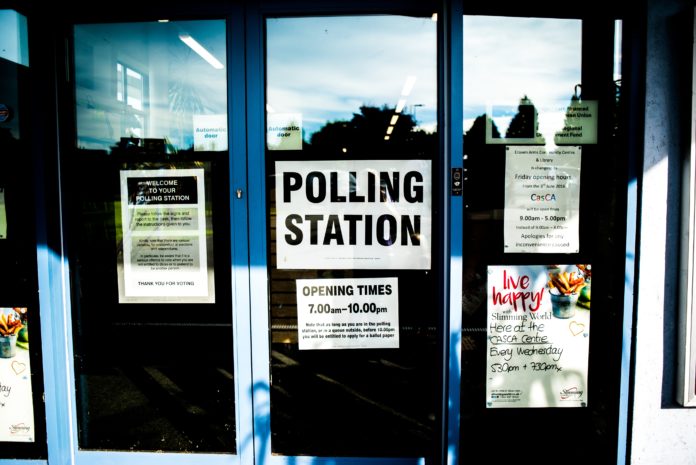Much has changed in Texas’s Implementation of democracy since September 5, 1836 when Sam Houston trounced rival Stephen F. Austin and Henry Smith to become the first elected president of the Republic of Texas. Or since Jan. 13, 1840, when Edwin Waller was elected the first mayor of Austin, the city he had helped found the year before. The evolution of democracy has included the enfranchisement of African-Americans, voting rights for women and, more recently, district-based elections of Austin’s city council members.
And more change is nigh.
Democracy, as a form of government, has been a part of civilizations dating back over 2,000 years to ancient Athens. The concept, whereby citizens’ are empowered to directly control their government or elect representatives to make decisions on citizens’ behalf, varies in form and function around the world. It is as much more a living construct of an ideal government than it is a final version of perfection.
As challenges arise with democracy, the form and function of democracy evolves. Compared to the first governments formed in Athens, or even the first two centuries of the United States, many more people are now empowered to participate in the process. But, do we really have inclusive and fair elections? Supporters of a democracy reform innovation, ranked choice voting, or RCV for short, would argue no. And, cities, across the world, are leading the charge in implementing this novel way to improve democracy.
The recent election in New York City highlights that RCV, also sometimes known as “instant-runoff voting,” is a concept that is here to stay; in fact, when one of the largest cities in the world takes such an action, one should expect a significant reverberation, with implications of this decision felt wide and far.
The concept of ranked-choice voting, first introduced by American professor W.R. Ware in 1870, requires that voters rank candidates for a given office by their preference—first choice, second choice, etc. Voters are not required to rank every candidate, simply the ones that they wish to rank. As the bipartisan non-governmental organization, the National Conference on State Legislatures explains: “Votes are first tallied based on the first choice on every ballot. When ranked-choice is used to elect one candidate (instead of multiple candidates in a multi-member district), if no single candidate wins a first-round majority of the votes, then the candidate with the lowest number of votes is eliminated and another round of vote tallying commences. If a voter’s first choice is eliminated, then the vote goes to the second choice and so on. Eventually one candidate receives a majority (over 50 percent) and wins the election. The result is similar to traditional runoff elections, but with just one trip to the polls.”
Traditionally, elections in Austin (both local and statewide) require citizens to select one candidate per race, with the winner determined either by someone receiving a plurality (the most against all candidates) or a majority (over 50%). This often results in candidates that are elected into office with more people voting against them at some point (initially or in first ballot) than for. When a majority is required, expensive runoffs are often required. For example, when the 2014 and 2016 elections for the board of trustees of Austin Community College District went to a runoff, the district incurred costs of $397,579 and $445,692, respectively, to administer the runoff elections. And the last time the Austin Independent School District had a runoff, in 2014, it cost Austin ISD $203,000. Each and every time a city, county or public school election goes to runoff, Austin citizens are asked to bear the additional costs incurred as the election jurisdiction essentially has to incur double their efforts. Our runoffs unintentionally tend to marginalize military and overseas voters, increasing the difficulty of them participating from the process due to the short time period between elections. Finally, in our races where candidates run under party affiliation, those running on 3rd party tickets are often viewed as “spoilers” in traditional elections, with each candidate performing their own calculations to estimate which candidate will be hurt the most by any 3rd vote cast.
These problems are exactly what RCV attempts to address, and is part of the reason that New York and 20 other major cities including San Francisco and Minneapolis, have enacted this form of representative government. As Lee Drutman, a senior fellow in the Political Reform program at New America says: “Cities are leading the way when it comes to electoral innovation. Ranked-choice voting is clearly a superior system of voting, and with so much broken politics at the national levels, cities have a great opportunity to lead the way.”
By implementing RCV in our general elections, Austin would be able to save money and encourage more candidates to consider running for office, providing more choices for voters. We would experience less negative campaigning, as candidates would be incentivized to positively reach out to as many voters as possible. And our elections would be more representative.
RCV is not a panacea, and won’t solve every issue or edge case of democracy, and, of course, there may be complications with moving to RCV. Our recently purchased voting machines may need to be reconfigured to allow for ranking of candidates. We will need to confirm the ability to audit o RCV elections is possible. And, citizens will need to be educated on how the new system works. Yet, all of these are easily overcome should the electorate wish to improve the process.
Austin has long had a reputation for being innovative, for pushing positive global change through local reforms. Should Austin elect to move our city and county elections to RCV, we would all benefit, but also provide another guidepost for how other jurisdictions can improve democracy. And, that seems to be something that Sam Houston, Stephen F. Austin and Edwin Waller would have wanted for our city and state.
If you like what you’ve been reading, please click here to subscribe and we will send you updates and our newsletter.




